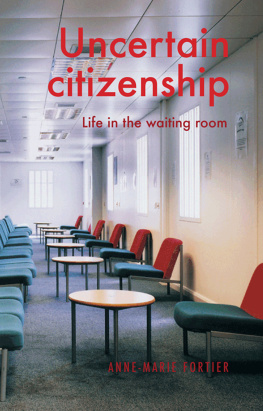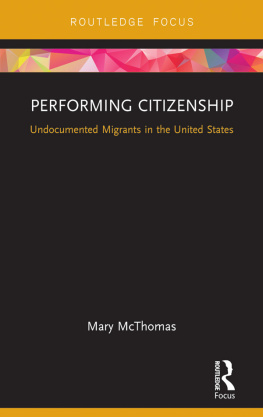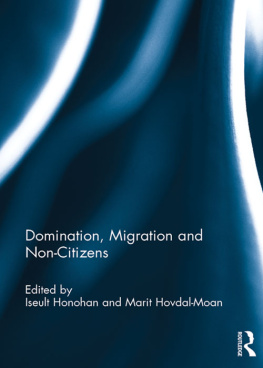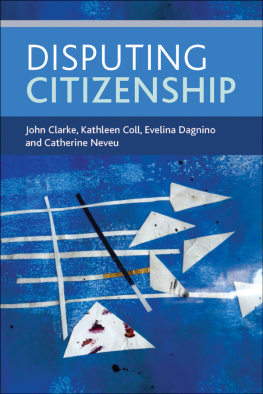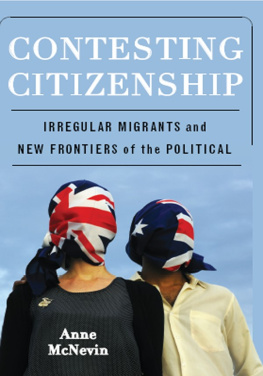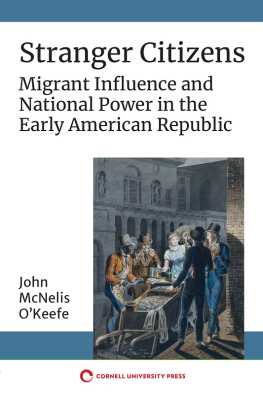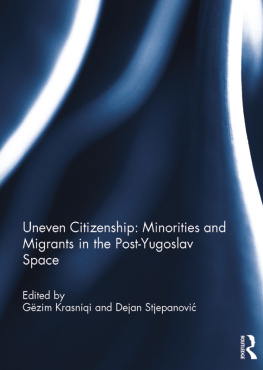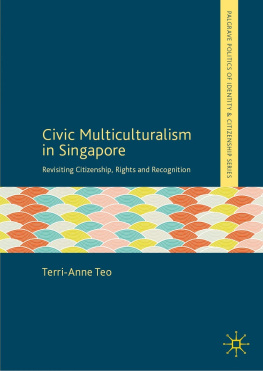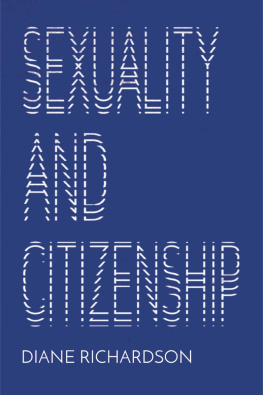Anne-Marie Fortier - Uncertain Citizenship: Life in the Waiting Room
Here you can read online Anne-Marie Fortier - Uncertain Citizenship: Life in the Waiting Room full text of the book (entire story) in english for free. Download pdf and epub, get meaning, cover and reviews about this ebook. year: 2021, publisher: Manchester University Press, genre: Politics. Description of the work, (preface) as well as reviews are available. Best literature library LitArk.com created for fans of good reading and offers a wide selection of genres:
Romance novel
Science fiction
Adventure
Detective
Science
History
Home and family
Prose
Art
Politics
Computer
Non-fiction
Religion
Business
Children
Humor
Choose a favorite category and find really read worthwhile books. Enjoy immersion in the world of imagination, feel the emotions of the characters or learn something new for yourself, make an fascinating discovery.
- Book:Uncertain Citizenship: Life in the Waiting Room
- Author:
- Publisher:Manchester University Press
- Genre:
- Year:2021
- Rating:4 / 5
- Favourites:Add to favourites
- Your mark:
Uncertain Citizenship: Life in the Waiting Room: summary, description and annotation
We offer to read an annotation, description, summary or preface (depends on what the author of the book "Uncertain Citizenship: Life in the Waiting Room" wrote himself). If you haven't found the necessary information about the book — write in the comments, we will try to find it.
Uncertainty is central to the governance of citizenship, but in ways that erase, even deny, this uncertainty.
This book investigates uncertain citizenship from the unique vantage point of citizenisation twenty-first-century integration and naturalisation measures that make and unmake citizens and migrants, while indefinitely holding many applicants for citizenship in what Fortier calls the waiting room of citizenship. Fortiers distinctive theory of citizenisation foregrounds how the full achievement of citizenship is a promise that is always deferred: if migrants and citizens are continuously citizenised, so too are they migratised. Citizenisation and migratisation are intimately linked within the structures of racial governmentality that enables the citizenship of racially minoritised citizens to be questioned and that casts them as perpetual migrants. Drawing on multi-sited fieldwork with migrants applying for citizenship or settlement and with intermediaries of the state tasked with implementing citizenisation measures and policies, Fortier brings life to the waiting room of citizenship, giving rich empirical backing to her original theoretical claims. Scrutinising life in the waiting room enables Fortier to analyse how citizenship takes place, takes time and takes hold in ways that conform, exceed, and confound frames of reference laid out in both citizenisation policies and taken-for-granted understandings of the citizen and the migrant.
Uncertain citizenships nuanced account of the social and institutional function of citizenisation and migratisation offers its readers a grasp of the array of racial inequalities that citizenisation produces and reproduces, while providing theoretical and empirical tools to address these inequalities.
Anne-Marie Fortier: author's other books
Who wrote Uncertain Citizenship: Life in the Waiting Room? Find out the surname, the name of the author of the book and a list of all author's works by series.

